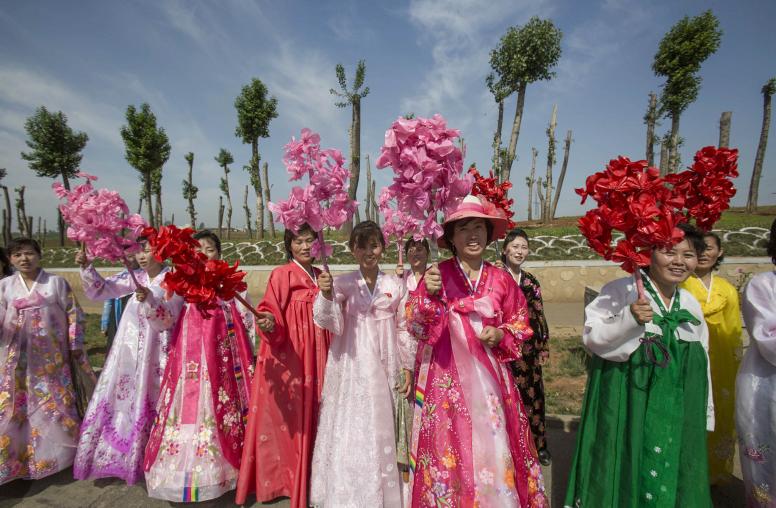Defining Conflict and Its Effects on Health: Case Study on North Korea
Johns Hopkins University/U.S. Institute of Peace Task Force on Public Health & Conflict Symposium Series
Case Study on North Korea
The symposium on North Korea will examine definitions of conflict in the context of a long-divided country and escalating tensions in the wake of North Korea’s nuclear weapons test. The symposium will bring together scholars, human rights advocates, program practitioners and personal Korean perspectives to discuss the conflict in and around North Korea and its impacts on public health.
About the Task Force
The goal of the USIP/JHSPH Task Force on Public Health and Conflict is to provide public health professionals and conflict mediators alike with a better understanding of the relationship between conflict and public health: how political context is critical to an understanding of complex humanitarian emergencies and how public health perspectives can offer insights for conflict analysis and resolution.
Task Force Events:
Armed Conflict as a Public Health Problem: Current Realities and Future Directions
April 20, 2007
Defining Conflict and Its Effects on Health: Case Study on Iraq
March 22, 2007
Negotiation and Conflict Resolution for Public Health Professionals
January 26, 2007
Defining Conflict and Its Effects on Health: Case Study on Afghanistan
February 8, 2007
Understanding Conflict and Its Relationship to Public Health: Case Study on North Korea
November 16, 2006
The Task Force on Public Health and Conflict is sponsored by the United States Institute of Peace and the Johns Hopkins Bloomberg School of Public Health, including the Center for Refugee and Disaster Response, the Hopkins Population Center, the J.B. Grant Society and the Health and Human Rights Group.
Through a series of events involving scholars, practitioners, and students, the Task Force is committed to raising the profile of conflict analysis and resolution in the field of public health education. In addition to the November 16th Symposium on North Korea, upcoming events are planned on Afghanistan, Iraq and conflict-related displacement.
Events
Through a series of encounters among scholars, practitioners, and students, the Task Force is taking steps toward raising the profile of conflict analysis and resolution in the field of public health education. The first of these encounters took place on November 16 and examined the case of North Korea. Additional symposia will cover Afghanistan and Iraq. This winter, USIP will run a conflict analysis and resolution workshop for public health professionals. In April, the Task Force hosts Dr. Chris Murray to speak on the peacebuilding effects of health.



